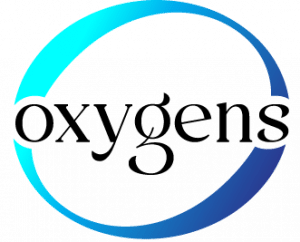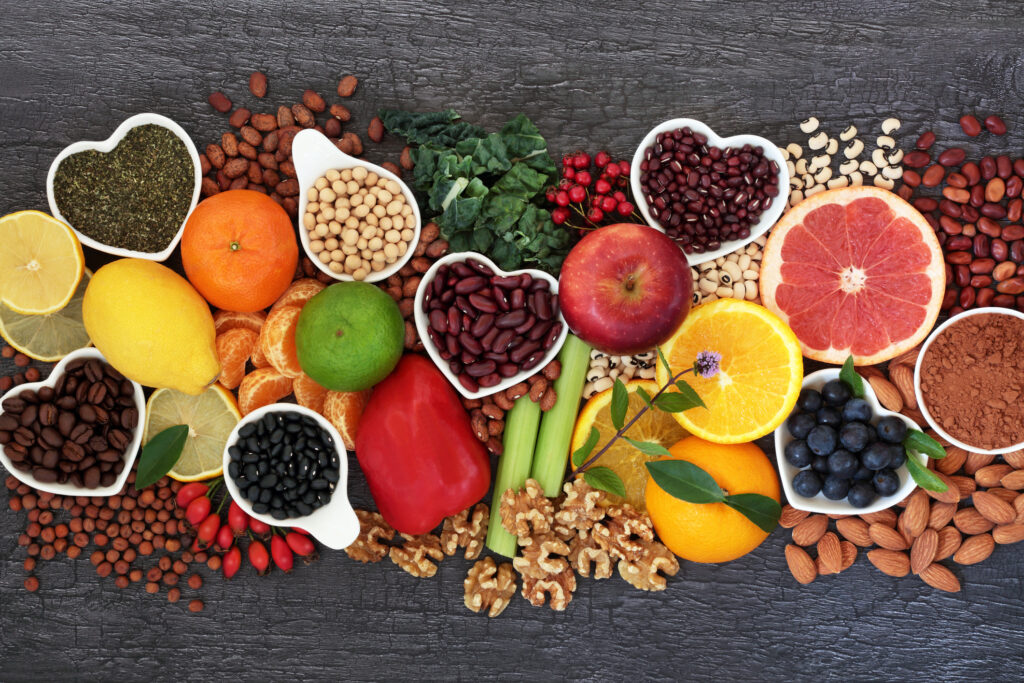Which Vitamins, supplements and Amino Acids should you use with hyperbaric oxygen therapy ?
Vitamins, supplements, and amino acids can play important roles in hyperbaric oxygen treatment (HBOT) in several ways:
- Supporting Tissue Repair and Healing: HBOT increases the availability of oxygen in the body, which is essential for tissue repair and wound healing. Amino acids, especially essential ones like arginine, lysine, and proline, are crucial for collagen synthesis, a structural protein that forms the foundation for tissues, skin, and blood vessels. Supplements containing these amino acids can promote better tissue repair and recovery during HBOT.
- Reducing Oxidative stress: While HBOT provides increased oxygen to promote healing, it can also generate oxidative stress in the body. This oxidative stress can lead to the production of free radicals, which can damage cells and tissues. Antioxidant vitamins like vitamin C, vitamin E, and minerals like zinc can help counteract oxidative stress and protect cells from damage during HBOT.
- Boosting Immune Function: Amino acids, vitamins, and minerals are essential for a well-functioning immune system. During HBOT, the immune system may be activated to aid in tissue repair and recovery. Proper nutrition and supplementation can help support the immune response by ensuring an adequate supply of nutrients needed for immune cell function and antibody production.
- Promoting Energy Production: Amino acids, especially branched-chain amino acids (BCAAs) like leucine, isoleucine, and valine, play a crucial role in energy production. They can be converted into glucose or used as an energy source, which is important during HBOT, as increased oxygen availability can enhance cellular energy production.
- Enhancing Circulation: Certain supplements like arginine and citrulline can support the production of nitric oxide, a molecule that helps relax blood vessels and improve blood flow. This enhanced circulation can optimize the delivery of oxygen to tissues during HBOT sessions.
- Addressing Specific Medical Conditions: In some cases, individuals undergoing HBOT may have specific medical conditions or nutritional deficiencies that require supplementation. For example, patients with diabetic ulcers may benefit from supplements containing arginine and zinc to support wound healing.
There are many vitamins, supplements, and amino acids, each with their unique functions and benefits in the body. Here is a list of some of the most important ones and their functions:
**Vitamins:**
1. **Vitamin A (Retinol):** Essential for vision, immune system support, and skin health.
2. **Vitamin B1 (Thiamine):** Helps convert food into energy and maintain proper nerve function.
3. **Vitamin B2 (Riboflavin):** Necessary for energy production and maintenance of healthy skin and eyes.
4. **Vitamin B3 (Niacin):** Supports metabolism, skin health, and nervous system function.
5. **Vitamin B5 (Pantothenic Acid):** Involved in energy production and the synthesis of fatty acids.
6. **Vitamin B6 (Pyridoxine):** Needed for brain development and function, as well as the production of neurotransmitters.
7. **Vitamin B7 (Biotin):** Essential for healthy hair, skin, and nails, and also involved in energy metabolism.
8. **Vitamin B9 (Folate/Folic Acid):** Important for cell division, DNA synthesis, and preventing neural tube defects during pregnancy.
9. **Vitamin B12 (Cobalamin):** Supports nerve function, DNA synthesis, and the formation of red blood cells.
10. **Vitamin C (Ascorbic Acid):** An antioxidant that boosts the immune system, aids in wound healing, and supports healthy skin.
11. **Vitamin D (Calciferol):** Essential for bone health, immune system function, and calcium absorption.
12. **Vitamin E (Tocopherol):** An antioxidant that protects cells from damage and supports skin health.
13. **Vitamin K (Phylloquinone):** Necessary for blood clotting and bone metabolism.
14. **Vitamin P (Bioflavonoids):** Supports blood vessel health and has antioxidant properties.
**Minerals:**
1. **Calcium:** Essential for strong bones and teeth, muscle function, and nerve transmission.
2. **Magnesium:** Involved in muscle and nerve function, bone health, and energy production.
3. **Iron:** Needed for the production of hemoglobin and the transport of oxygen in the blood.
4. **Zinc:** Supports immune function, wound healing, and DNA synthesis.
5. **Selenium:** Acts as an antioxidant and supports thyroid function.
6. **Potassium:** Helps regulate fluid balance, muscle contractions, and nerve signals.
7. **Copper:** Necessary for the formation of red blood cells and bone health.
8. **Iodine:** Essential for the production of thyroid hormones.
**Supplements:**
1. **Omega-3 Fatty Acids:** Support heart health, brain function, and reduce inflammation.
2. **Coenzyme Q10 (CoQ10):** Supports heart health and energy production.
3. **Probiotics:** Promote gut health and aid digestion.
4. **Glucosamine and Chondroitin:** Support joint health and reduce joint pain.
5. **Melatonin:** Regulates sleep-wake cycles and treats insomnia.
Amino acids are organic compounds that serve as the building blocks of proteins, which are essential for the structure and function of the human body. There are 20 standard amino acids, and they can be categorized into three groups based on how the body acquires them:
1. **Essential Amino Acids (EAAs):** These amino acids cannot be synthesized by the human body and must be obtained through your diet or supplements. There are nine EAAs: histidine, isoleucine, leucine, lysine, methionine, phenylalanine, threonine, tryptophan, and valine. They are vital for various physiological functions, including:
– **Protein Synthesis:** EAAs are the raw materials needed to build proteins. They play a crucial role in maintaining and repairing tissues, such as muscle fibers, skin, hair, and organs.
– **Growth and Development:** EAAs are particularly important for children, adolescents, and pregnant women as they support proper growth, tissue development, and the formation of essential molecules.
– **Immune Function:** Certain EAAs, like lysine and methionine, are involved in the production of antibodies and enzymes that help protect the body against infections.
– **Neurotransmitter Production:** Tryptophan is a precursor to serotonin, a neurotransmitter that regulates mood and sleep.
– **Energy Production:** EAAs can be converted into glucose or used as an energy source when needed.
2. **Non-Essential Amino Acids (NEAAs):** These amino acids can be synthesized by the body, so they do not need to be obtained through diet. There are 11 NEAAs: alanine, arginine, asparagine, aspartic acid, cysteine, glutamine, glutamic acid, glycine, proline, serine, and tyrosine. They have various functions in the body, including:
– **Building Blocks:** NEAAs contribute to the synthesis of specific proteins and molecules, such as enzymes, hormones, and DNA.
– **Metabolism:** Amino acids like arginine are involved in the urea cycle, which helps eliminate toxic ammonia from the body.
– **Neurotransmitter Production:** Glutamate and aspartate act as excitatory neurotransmitters in the central nervous system.
– **Detoxification:** Cysteine is a key component of the antioxidant glutathione, which helps neutralize harmful free radicals and detoxify the body.
3. **Conditional Amino Acids:** These amino acids are typically non-essential, but their demand can increase under specific conditions, such as illness or stress. Examples include arginine, cysteine, glutamine, glycine, ornithine, proline, serine, and tyrosine. They play roles in:
– **Wound Healing:** Arginine and glycine are crucial for collagen synthesis, aiding in tissue repair and wound healing.
– **Immune Support:** Glutamine is essential for immune cell function and maintaining the integrity of the gut lining, which is vital for immune health.
– **Neurotransmitter Balance:** Tyrosine is a precursor for dopamine and norepinephrine, important neurotransmitters involved in mood regulation and stress response.
– **Detoxification:** Cysteine is essential for the synthesis of glutathione, which helps the liver process and eliminate toxins from the body.
Amino acids are not only important for protein synthesis but also have far-reaching effects on overall health. An adequate intake of both essential and non-essential amino acids is essential to support various bodily functions, from muscle growth and tissue repair to immune system function and neurotransmitter balance. Balanced nutrition plays a critical role in ensuring you receive an adequate supply of amino acids, but supplements can also be used when necessary to meet specific dietary requirements or address certain health conditions.
Please note that while these vitamins, minerals, supplements, and amino acids have various health benefits, it’s essential to consult with a healthcare professional before adding any new supplements or making significant changes to your diet, especially if you have underlying health conditions or are taking medications. They can provide personalized guidance based on your specific needs and health goals.

